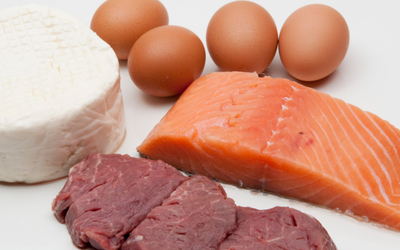On a Budget? Don’t Let It Affect Your Diet
Everyone knows that fast food and unhealthy snacks are cheaper than organic foods, and this is part of the reason that people are becoming so unhealthy. Choosing home-cooked meals created from fresh ingredients seems so much more difficult than sitting down and ordering a meal that’s prepared for you, but your health is suffering as a result. And when you’re on a budget, it seems even harder. There are ways around this though – it’s simply a matter of making healthier decisions that don’t compromise on cost. For example, one of the easiest ways to make a healthier meal is to opt for whole foods – these are ingredients that have been harvested and packaged, without being processed in any way. As such, they’re usually cheaper than foods which have been given flavourings and preservatives. If you’re trying to eat healthier, these are a great way to begin as you have more control over what you’re eating. Another tip is to eat cheaper proteins. This is commonly associated with meat, as steaks and lamb joints can be pretty expensive. Opting for cheaper cuts, such as lean chicken or turkey, as well as eggs and whey, could help you stay healthy and on budget. It may not be quite as tasty but it does the job for less cash.
Frozen foods often get overlooked, but they’re a great way to stay on budget as well as making healthier choices. We often attribute frozen foods with unhealthy diets, thanks to the influx of ready meals and junk food, but frozen vegetables and fruits are often actually healthier as they’re frozen immediately after being picked, so that they retain more nutrients. They also save you time as they’re prepared before being frozen, so you don’t have to worry about cutting and removing anything when you come to cook them. They have a longer shelf life, so you can buy in large quantities without worrying about them spoiling in the back of the fridge. And they’re cheap, so you can get your five a day without it costing the earth. If you buy own brand, not just in frozen foods but across the board, you’ll save yourself money but not taste. Store brands aren’t lower in quality, they simply lack the fancy advertising and packaging. The taste is generally the same, but you’ll notice a big difference in how much you pay. And if you’re worried about lacking nutrients in your diet, you could use a supplement. Though they shouldn’t be relied upon, supplements are a great way of boosting your diet and ensuring that you don’t become deficient.
Use the seasons as a guide for what you should be eating, as you’ll pay less for the goods and also get fruit and vegetables at their best. For example, buying strawberries in the winter will cost you as you’ll be paying for the supermarkets to import them from other countries. By working out the seasons for your favourite produce, you’ll save yourself money, get ingredients that are packed with nutrients and also be better in flavour. If you’re finding that being on a budget is making you hungry, you may want to fill up on calorie dense foods, such as pasta and potatoes. They may not be loaded with vitamins and minerals, but they fill you up and are cheap to buy. Ingredients like pasta are also great store cupboard essentials, as they are cheap but last for ages. Canned goods are also great for this – tinned vegetables, fruits and legumes will bulk up your diet without costing you loads in waste and expensive fresh foods.

Comments are closed.